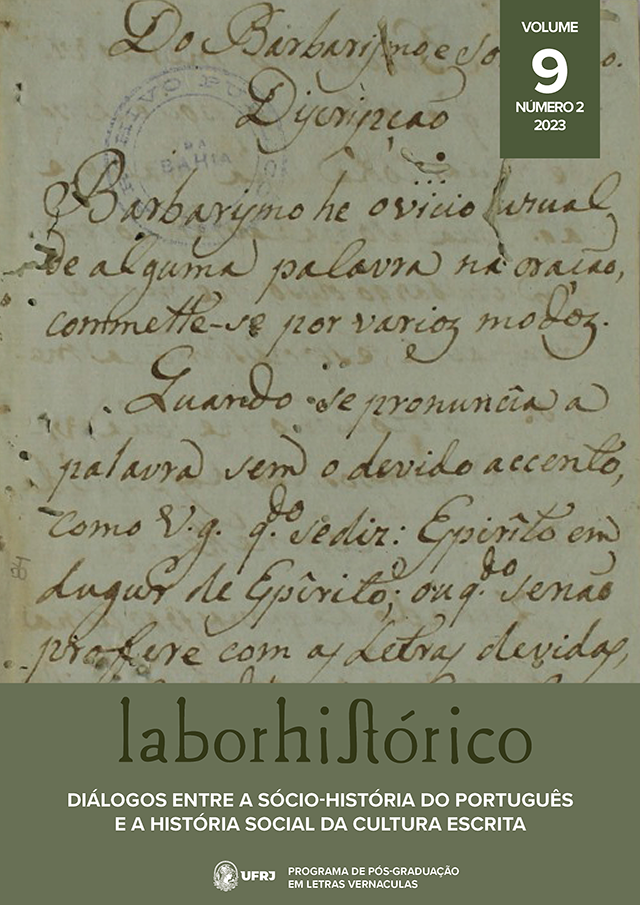The importance of a history of the grammatical stages of Portuguese in Colonial Brazil
DOI:
https://doi.org/10.24206/lh.v9i2.55308Abstract
This study aims to discuss the relevance of understanding the history of portuguese grammars in Colonial Brazil, to broaden the knowledge regarding the (multi)linguistic dynamics of Colonial Brazil and, consequently, the formation of Brazilian Portuguese (BP). Based on the research guidelines proposed by Mattos e Silva (2008) for the study of the formation of the prestigious side of BP, it is argued that the history of portuguese grammars in the brazilian colonial period should be paralleled by the history of portuguese grammars in Portugal, assuming that the results of this research tend to contribute to the history of both modern European Portuguese (PE) and BP. For the construction of the argument of the proposal, some socio-historical factors are presented (a portuguese koinezation, linguistic contact and the role of the portuguese language in the sociolinguistic processes that took place in Colonial Brazil), linguistic (a non-linearity of portuguese grammars during colonization) and philological (the need to take into consideration the historicity of written texts). Finally, some specificities for the constitution of the corpus that take into consideration this suggestion of research and are presented, and two possibilities of questions that can be asked to direct the analysis of linguistic data are mentioned: one is related to the understanding of the portuguese grammatical basis of BP and the other is related to understanding how the linguistic dynamics of Portuguese language occurred in the Colonial Brazil.
Downloads
Downloads
Published
Issue
Section
License
Authors who publish with this journal agree to the following:
a. The authors hold copyright of the published papers; authors are the sole responsible party for published papers content; the published paper is licensed under a Creative Commons Attribution-NonCommercial 4.0 International License which allows the sharing of the publication as long as there is acknowledgement of authorship and publishing by Revista LaborHistórico.
b. Authors should seek previous permission from the journal in order to publish their articles as book chapters. Such publications should acknowledge first publishing by LaborHistórico.
c. Authors may publish and distribute their papers (for example, at institutional repositories, author's sites) at any time during or after the editorial process by Revista LaborHistórico.


